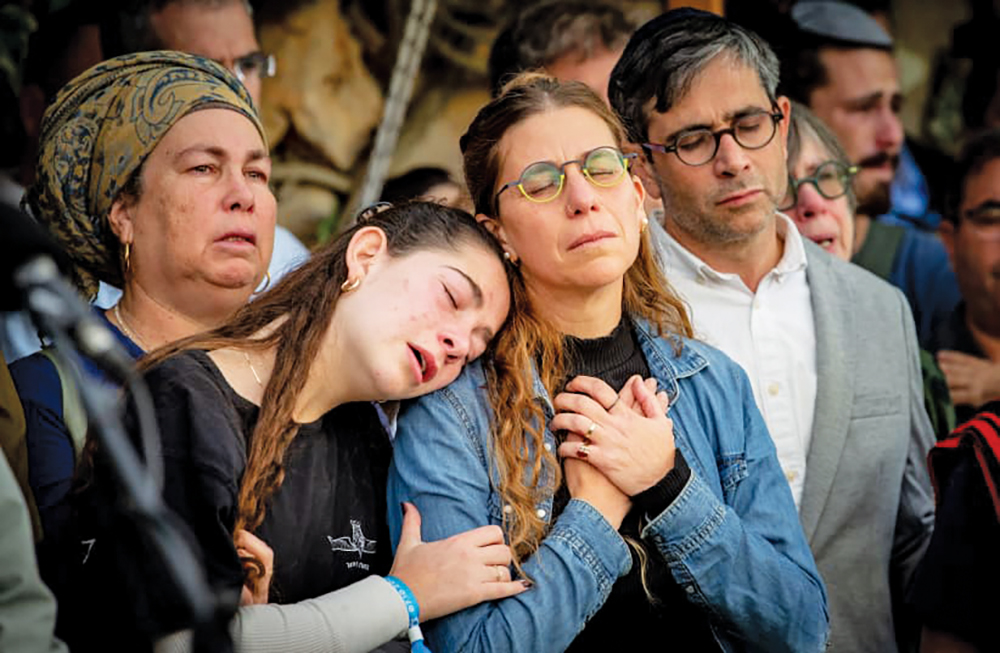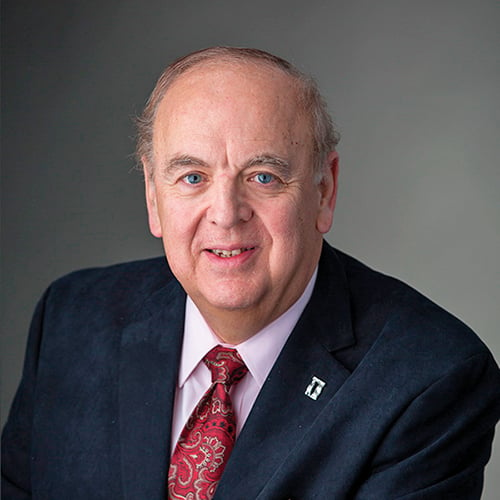
When people leave this world, we mourn their passing and grieve for the loss. When people die tragically and suddenly, we are left wondering how they died, and in what state of mind they left our world. The uncertainty is extremely painful. If we only knew how they died and what their final thoughts were, we would receive some degree of solace and comfort. Unfortunately, in most instances we are left with a silent void.
During our current war, we have received some degree of consolation by hearing voices of fallen soldiers speaking to us from heaven. Numerous letters were written by soldiers, to be read in the tragic event that they fell in battle. These heartbreaking voices from heroes who left us tell us much about our world, our culture and our value system, while reminding us about everything that is right and honorable about our people.
Throughout history we sacrificed our lives on behalf of our faith, but we rarely had an opportunity to pen our thoughts. Sadly, in many instances Jews were murdered suddenly, caught in violent pogroms or rapidly herded to their death, leaving no time to record thoughts. Even when we had the time to ponder our fate, we rarely captured our thoughts in writing. Now that we have achieved Jewish sovereignty and the privilege of a Jewish army, for the first time, we are privy to the innermost thoughts of Jewish heroes as they face the prospect of dying on behalf of our people and our land.
For the families, these final thoughts provide solace, for the rest of us they provide inspiration. What do these letters say about our soldiers and about our society?
Celebrating Life
Firstly, the letters celebrate life rather than glorifying death. They were written with uncommon poise and remarkable composure, given the real risk of death. The soldiers encourage their families to applaud their lives rather than sink into despair. Fallen soldier Ben Zusman, z”l wrote, “Even if something occurs, I don’t allow you to sink into despondency. I had the privilege to fulfill my dream … and rest assured I am looking down on you from heaven with a broad smile.”
Unlike other religions, Judaism doesn’t pursue martyrdom and Jews don’t have a collective death wish. We do, however, designate several cardinal values such as faith and commitment to Jewish history as more important than our personal lives. This perspective fills us with meaning, purpose and nobility. If these larger values are, however, more important than our own narrow experience, we must be prepared to die for those values if necessary. Otherwise, we don’t fully live for them.
While we aspire to life, and hope to live long lives based upon our values, we are prepared to die if the situation demands it. Jewish martyrdom doesn’t worship death but rather ennobles life.
This balance between celebrating life but being prepared for death is our collective legacy. In the last moments before his brutal execution, the legendary martyr, Rebbi Akiva, registered his chilling but fearless thoughts about martyrdom: “All my life I agonized about this possibility [of martyrdom] and now that the moment is upon me, I will not flinch.” Though Rabbi Akiva never chased martyrdom, he did actively wonder about it. Every committed Jew is haunted by the persistent question, “Will I be challenged to pay the ultimate price for my beliefs?” For centuries, we defiantly surrendered our lives to defend the presence of God in a nightmarishly dark world. Without that selfless commitment, our faith would never have survived. Jews are always prepared, never glorifying death, but always upholding our values, if necessary, by defending them to the death. We were always prepared. Our soldiers were also prepared. Their letters aren’t about death, but are voices of life and its deeper meanings.
The Historical Moment
Secondly, many of the letters acknowledge the magnitude of this historical moment. They are aware that we battle on behalf of Jewish history and moral spirit. One of the ten martyrs, Rebbi Chanaya ben Tradyon, was wrapped in a sefer Torah while being burned alive. As he was dying, he confidently remarked to his daughter that his fate was now interlaced with the Torah’s fate. This reassured him that his death wasn’t purposeless and would, one day, be avenged. Being wrapped in a sefer Torah signaled that his death was a small part of a larger narrative.
Fallen soldier Rabbi Elkanah Weisel, z’l expressed similar historical vision when he wrote “We are a redeemed generation, and we are composing the most dramatic moments of Jewish history.” The exquisite letters exude a lofty transcendence, recognizing that the war and their tragic deaths are a small part of a larger and more eternal historical narrative.
About eight years ago I went to console Chanah Henkin, a pioneer of women’s Torah education, whose son and daughter-in-law were killed in a terror attack. She inquired of one of the visitors the number of books in Tanach and received the correct answer—24. Chanah corrected her: “There is a 25th book, and it describes the return of the Jewish people to their homeland in the face of hostile opposition. My children, who were killed, are in that book.” The letters remind us that we are all part of the 25th book. Future generations will tell our story. That story will include the stunning letters of our fallen soldiers.
Living in Two Worlds
None of the letters, even those written by religious soldiers, mentions the afterlife. Judaism envisions a delicate union between this world and the next. We build our spiritual identity in this world and maintain spiritual experience in the next world, without the obstacles that this world poses. We build Heaven on Earth and take it with us when we die. Viewing the afterlife as a “result” rather than a “reward” fastens us to this world. These letters, composed by people on their way to the next world, are still firmly grounded in this world.
Rabbi Elchanan Wasserman was a saintly pre-WWII European leader who was murdered during the Holocaust. As the Nazi executioners approached, he calmly urged his students “ Apparently, they consider us righteous in Heaven … We must realize that our sacrifice will be more acceptable when it is accompanied by repentance. We will thereby rescue our brothers and sisters in America … our sacrifice will be more acceptable when it is accompanied by repentance. The fire that will now consume our bodies is the very same fire that will give rise to the rebirth of the Jewish people.” He didn’t mention the splendor of the afterlife, but how their death would impact this world. In their letters, our soldiers expressed great pride in defending our country and eradicating horrific evil from this world.
Selfless Letters
Finally, the letters are extremely unselfish, providing comfort for the families who may ultimately face crushing loss. The letters remind me of the midrash’s description of Yitzchak’s final conversation with his father as he was bound on the altar, facing his own sacrifice. Yitzchak expresses concern for his elderly parents, who will no longer have a child to help them navigate old age. Additionally, as he is worried that the tragic news of his death will break his mother’s heart, he instructs his father to deliver the news gently while his mother isn’t in danger’s way.
Chillingly, the soldiers explicitly forbid any prisoner exchange, should they be taken hostage. Well aware of the horrific treatment of hostages, the soldiers put the welfare of the country above their own welfare.
These are sacred letters of life, historical consciousness and selflessness. May the memory of the heroic authors be a merit for our people and may we make them proud.
The writer is a rabbi at Yeshivat Har Etzion/Gush, a hesder yeshiva. He has semicha and a BA in computer science from Yeshiva University as well as a masters degree in English literature from the City University of New York.










